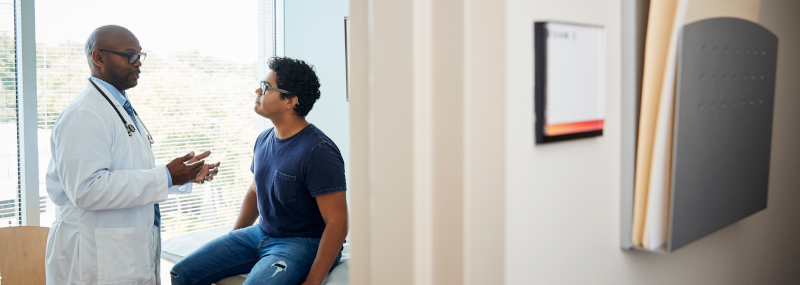Finding the right doctors can be tricky. You may get recommendations from friends and family, or people who’ve had similar symptoms—these referrals can be helpful as they often have experience with the referred doctor or specialist. If you already have a primary care physician and they refer you to a specialist, that can be a great place to start.
You can also check with your local hospital to see if they have a list of specialists, search through the in-network list of doctors on your insurance company’s website, or your state or county medical society may have good resources.
Other resources to consider include:
- DocInfo. The Federation of State Medical Boards (FSMB) offers this tool to help patients research their doctors. You can use it to search by doctor name and state to find certifications, education, active licenses, and any potential disciplinary actions.
- National Committee for Quality Assurance (NCQA). This organization measures the effectiveness of doctors and specialists, allowing you to search the NCQA report cards to find doctors who have been evaluated by the NCQA.
- Physician Compare (for Medicare-eligible patients only). Offered by Medicare to help patients find health care providers, this website lets you filter results by distance, gender, board certification, solo practitioners or part of a group, and by providers who accept Medicare patients.
Researching your medical care team can be very beneficial. To the extent it’s possible, finding out what you can about a doctor or surgeon before agreeing to a treatment or surgery is a good idea.
Interviewing doctors and surgeons
Consider scheduling an initial consultation with a new doctor or surgeon to ask questions and get to know them. During the meeting, ask questions like:
- What’s your approach to treating my condition or illness?
- How much experience do you have?
- How many patients like me do you see every year?
- For surgeons: How many of these surgeries do you perform?
- Are you board certified, and in what specialty?
Sharing information with multiple doctors
Sharing results with all doctors involved in a patient’s care has no automatic system, so making sure the doctor you work with has the most recent results from tests done by other doctors might take extra effort. You may need to ask one doctor’s office to send your results to another, or you might also be able to ask the doctor’s office to contact the other office to get your results.Your legal support team
Getting some legal documents in place can also be a good idea, just in case. Naming a health care proxy and writing a living will are crucial to communicate the treatment you’d like to receive if you’re unable to make medical decisions. You may never need it, but having these things in place could help give you less to worry about.
Writing a will and making sure you have up-to-date beneficiaries on all accounts can also help give you peace of mind that your loved ones will be taken care of in case anything ever happens. Finally, setting up a power of attorney can also be beneficial.


